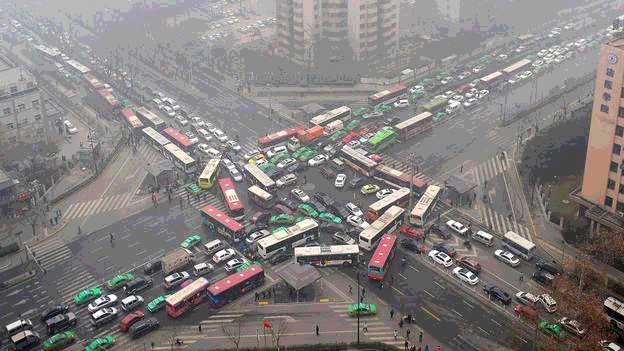
By The Stirrer
Preamble
Over the last few years, I’ve written posts covering a wide range of issues. Some were attempts at coming up with a vestige of an analysis of how we’re being screwed over, others were exercises in thinking out loud. They cover the Fourth Industrial Revolution and how the Covid crisis was leveraged to accelerate what was already happening with that, the class war that’s being waged upon us, through to the worrying drift to all out war. Since moving down to Keynsham, I find myself writing more about various environmental crises. Carrying on from when we used to live in Thurrock, I’m still writing about a short term, myopic ‘planning system’ that delivers the exact opposite of what we need to live in a more sustainable and sane future.
Taking into all of the above, it’s pretty clear we’re in what can be described as a ‘bit of a situation’. To put it more crudely, it’s a clusterf**k. One that’s comprised of a number of crises occurring simultaneously. Sometimes, I feel the need to take a step back and work out if there’s any pattern to what’s going on, without falling down a conspiracy theory rabbit hole. It should be noted that one person’s conspiracy theory is someone else’s pretty damn accurate prediction. It should also be noted that there are grey areas. Let’s just say that I’ve been to some of those grey areas. The lesson learned from those visits is that having an open mind in these weird and troubled times is an asset to be prized.
It’s only when you start to pull all of the disparate threads of the ongoing clusterf**k together that it becomes frighteningly obvious we’re heading towards some kind of system failure, possibly even a collapse. What this piece is attempting to do (quite possibly in vain) is to try and analyse why we are where we are and then establish what, if anything, we can do to save ourselves.
What is the nature of these crises?
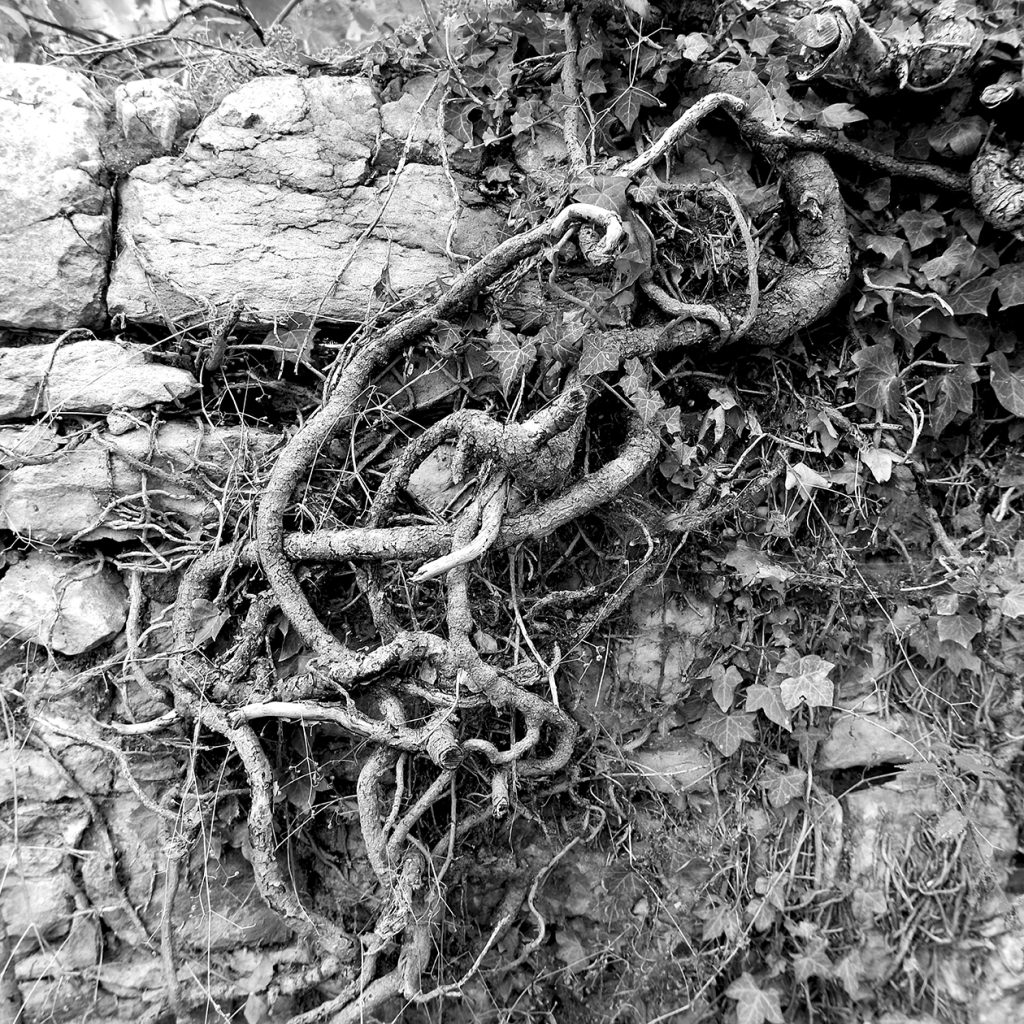
There’s no easy way to answer an existential question like this. The only way to attempt this exercise is to try and look at what the component parts of the crisis are and how they mesh and interact with each other. The problem in doing this is being able to switch off and sleep at night, ready to return to the fray the next day!
We’re being screwed over by crises ranging from an escalating class war, the impact of the measures imposed to supposedly ‘deal with’ Covid, the accelerating implementation of the Fourth Industrial Revolution through to an assault on what it means to be truly human, the threat of world war and environmental degradation. When there’s a lot happening, it’s difficult to join the dots to try and work out how everything fits together. Matters are not helped by the seemingly obsessive focus on just one symptom of the crisis while other aspects of it are downplayed or conveniently ignored.
Focusing on carbon emissions is just one example of this. Which is why when we wrote this post arguing against the further expansion of Bristol Airport – Why it has to be no go for Bristol Airport expansion 20.10.22 – we made a point of arguing against it on planning grounds with barely a mention of carbon emissions. This was in order to see if it’s possible to create a wider level of support for the campaign against the expansion that could include climate change sceptics.
Obsessively focusing on just one aspect of a wider systemic crisis will backfire in that it will put off people who prefer to take a more holistic view of why we are where we are. People need to be given the credit for being presented with a view of what’s going on that joins a fair number of dots, and by and large, being able to understand it.
It’s a systemic crisis
History shows us that civilisations come and go. Civilisations do collapse and there is considerable debate, scholarly and otherwise, as to why they collapsed. While there may be one major factor that tipped a civilisation over the edge, there will always be other factors in the mix. The hard part is working out how all of the factors interacted with each other to finally bring a civilisation down. What makes it even harder is that we examine past civilisations through the prism of living in the one we’re in now. When the civilisation we’re currently living in is showing more and more signs of system failure, it’s understandable that people may shy away from certain conclusions because they would forecast our own downfall. What makes the crisis we’re in now different from many others is how a system based on ruthlessly exploiting nature and natural resources has scaled up to dominate the entire planet. Past civilisations were regional, ours is global. Hence the urgency of the crisis.
To understand what the crisis we’re living through is, it has to be broken down as far as possible into its component parts. Doing do may well make you wonder what, if any, relationship these parts actually have with each other? It will make you wonder how they interact, influence and at times, magnify each other. It will make the whole scenario seem complex.
While we have been accused of being ‘conspiracy theorists’ and have openly admitted to looking at so called alternative explanations for the clusterf**k we’re being subjected to, we’ve always robustly rejected overly simplistic explanations involving eternal, yet hidden power structures. Although we openly acknowledge the evil of those who rule over us – the corporations and the governments who do their bidding plus the occasional royal family and associated aristocracy, we don’t subscribe to the view that they can keep their plans and methods secret from humanity for all of eternity. Elites are only elite because at some point, their ancestors had more muscle than everyone else and since then, have managed to a degree to maintain a monopoly of force and coercion. A caveat – the cast does change as various factions fight each other for control and new players who can muster enough muscle enter the scene. That’s it…they’re no brighter or wiser than the rest of us and there are periods in history where they lose their grip.
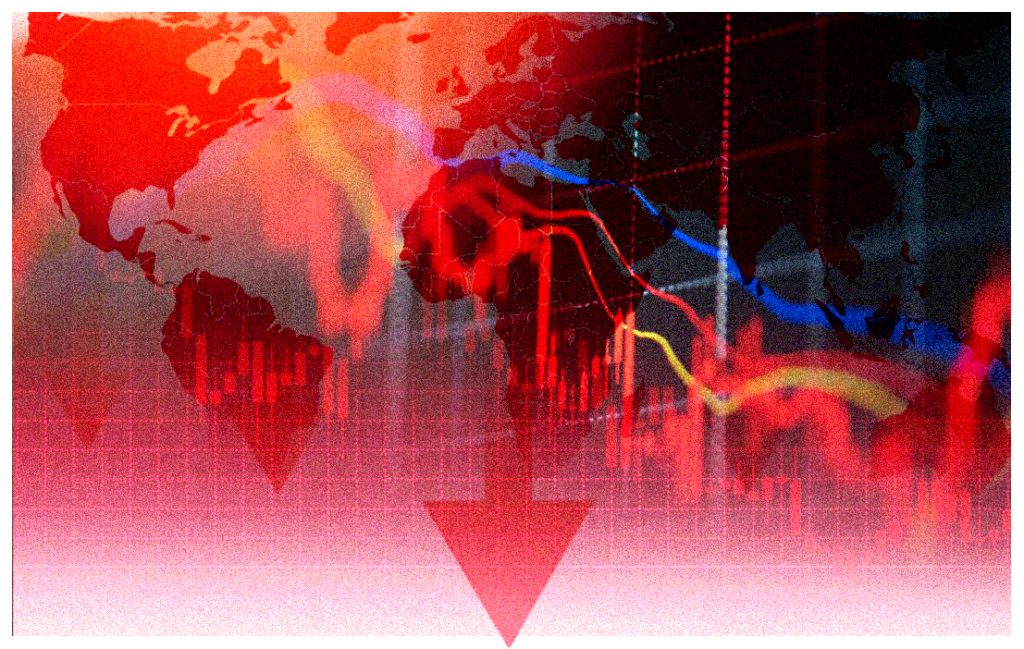
We’re living through such a period now. The way they leveraged the Covid crisis and instituted a shut down of the economy in a bid to forestall a financial crash is but one example of their desperation. The way they’re leveraging the issue of carbon emissions while simultaneously doing what they can to disconnect that from other environmental crises shows their desperation to find ways of controlling us while hanging on to their obscene wealth. They’re showing signs of losing it…
This is why we’re making an attempt to look at the various threads that make constitute the crisis we’re living through. It’s not just to show how the crisis has evolved, it’s also to try to throw some light on the weak points and vulnerabilities of those who presume to rule over us. Exposing those weaknesses and vulnerabilities shows how we can, if we get our act together, bring them down once and for all.
It’s a crisis of the elites screwing the planet and waging a class war upon us
Those who presume to rule over us know that a system based on the continuous exploitation and extraction of resources on a finite planet cannot go on forever. The problem for them is how to hang onto their ill gotten gains while keeping the lid on an increasingly restive populace. The last thing they want to do is sacrifice their power and wealth for the common good. They have to find a way of keeping us in our place while they continue to swan around the world, flaunting their wealth. It shouldn’t come as any surprise that they will find ways of leveraging a crisis to see if that can be turned into a way of controlling people and dampening, even destroying their hopes and aspirations for the future. This is why what has always been a class struggle is accelerating as the bastards, desperate to hang onto their wealth and power, become ever more open about screwing us over and grinding us down.
It’s a crisis of looming war
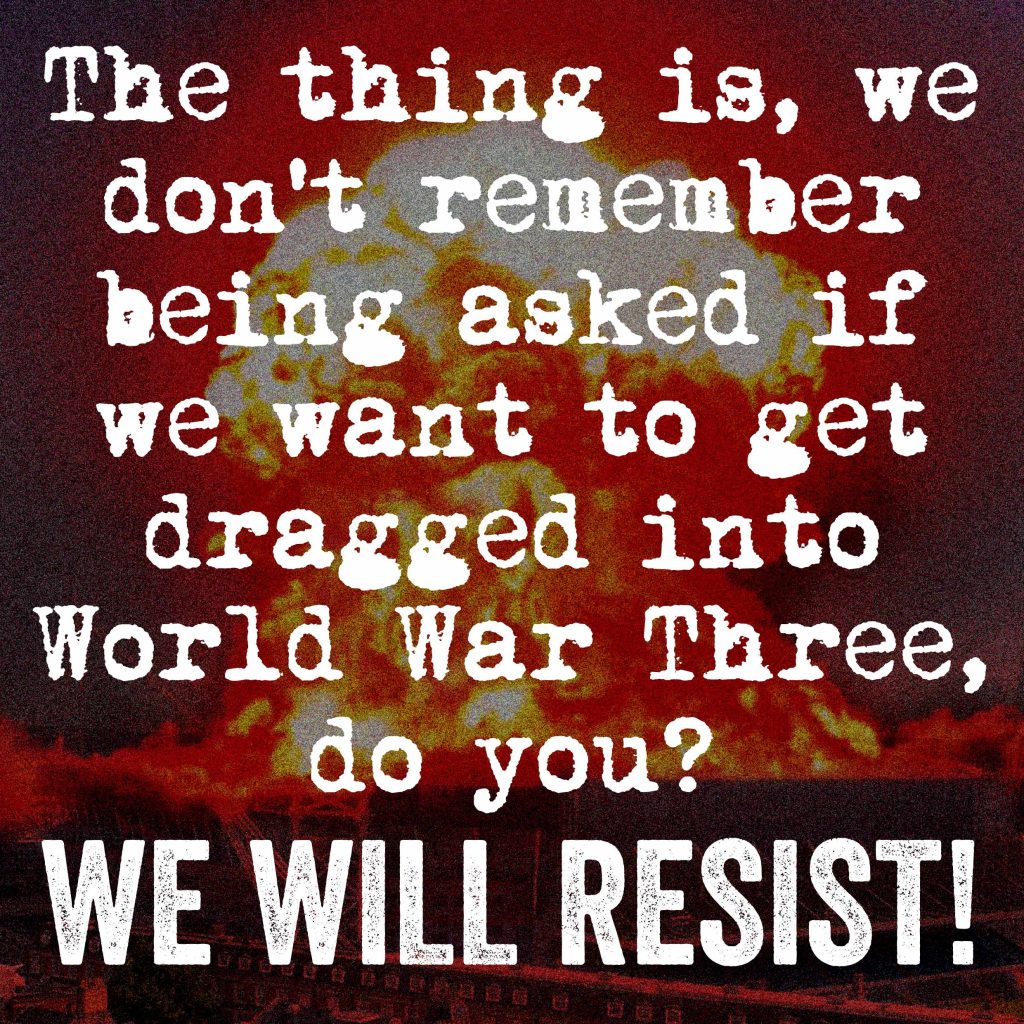
Far from moving to any kind of peaceful solution, the conflict between Russia and Ukraine, part of the broader power struggle between the United States and Russia, appears to be escalating towards a dangerous new phase. A United States desperately doing what it can to maintain it’s unipolar status, using NATO and Ukraine to achieve that objective, against a revanchist Russia does not make a good mix.
When this toxic combination is combined with output from the majority of media in the West that’s nothing more than one sided propaganda, it’s a deeply worrying situation. Which is why, in a bid to counter this, we end up have to go to fringe and alternative sources of analysis and commentary in order to provide some balance.
There are vestiges of an anti-war movement here and there. However, they mainly tend to be associated with what has survived of the anti-imperialist left. Whether they have the capacity to reach out to the broader population to build the anti-war movement that’s needed is questionable. There are other anti-war currents around, some of whom have emerged from a number of the strands of opposition to the lockdowns of 2020/2021 imposed in a bid to ‘deal with’ Covid.
It would appear that anti-war sentiment stretches across and outside of the political spectrum. Whatever anti-war movement may emerge from this will of necessity have to be a broad one. That will be a challenge to build. However, it’s one we can’t afford to duck…
It’s a crisis of crises being leveraged by the elites to keep their wealth and power
It has been argued by a number of people that the Covid crisis was leveraged to do just this.
It has been argued that the lockdowns and restrictions brought in to ‘deal with’ Covid were an experiment to see how people could be manipulated and controlled. Merely saying this will bring forth accusations of being a ‘conspiracy theorist’. Given the damage the lockdowns and restrictions have wreaked on the social fabric, these arguments need to be taken seriously.
We’re talking about lockdowns that kept people apart from their families. Lockdowns that led to isolation and mental health crises. Crises, the consequences of which we’re starting to reap. Then there were the arbitrary and pointlessly cruel restrictions. Restrictions that denied many the chance to properly mourn their loved ones at funerals. Lockdowns and restrictions that a number of critics saw as an experiment in mass social manipulation and control to be evaluated and refined for future implementation in the next ‘crisis’. The lockdowns and restrictions were leveraged to accelerate the Fourth Industrial Revolution that wants to deny our essential humanity, isolate us from each other and make us ever more reliant on high tech and big pharma.

These are some of our thoughts on where the 4IR is leading us: Transhumanism, the great reset & the ‘new normal’ – some important readings 2.2.22. For the record, these are our brief thoughts on the varied currents of opposition that each for their own reasons, refused to submit to the agenda: Dealing with reality… 2.2.22.
So, now there appears to be a growing reaction against the Covid narrative, what’s next in the array of strategies and tactics the elites have at their disposal to keep us plebs down where we belong? One of them is the reduction of carbon emissions. It should be acknowledged that whether, there is or isn’t a carbon crisis is still a matter of debate in some circles.
These are two writings we featured in this post – A couple of alternative readings on carbon 30.10.22.
It Really Doesn’t Matter – Darren Allen 1.9.22
Climate change, or global heating, is almost certainly happening, and it is almost certainly caused by man-made activities, specifically our prolific production of carbon dioxide, although even if neither of these statements is true, it doesn’t matter because our civilisation is still doomed, for the same reason that every civilisation is doomed; we have outrun our resource base. The hyper-complexity of our technological system depends on fossil fuels; gas, coal and, most of all, oil. Everything we use is made from oil, transported with it, our food is effectively grown on a layer of it and our economies are entirely dependent on petrochemical products produced from oil which, very soon, will be too expensive to extract. When this happens – when the energy required to extract coal, oil and gas approaches that which they provide – it will be game over.
The Science Is Wrong: It’s Soil, Not Oil – Denis de Bernardy 17.10.22
The decision seemed natural at the time. An economic storm was looming once again. This one looked really bad. The time was now or never, I figured. The financial rat race was sterile. So was the associated environmental destruction. I had long wanted to work on environmental issues. I set out to grow food in harmony with nature.
The honeymoon period with the environmental activist groups I latched onto was short. Meetings seldom seemed to get anywhere. Neither did petitions or protests. You’d be hard pressed to find anything less effective than this if you were a propagandist tasked with setting up a controlled opposition psyop. It’s basically all shout and no do.
This is difficult one for us because we know a fair few people in the climate movement, most of who we’re on pretty good terms with. All we want to do is point out how a crisis can be leveraged by the elites for their own, nefarious ends. There’s an increasing body of evidence showing that the climate crisis is being leveraged by the elites to enable them to maintain their control while clamping down on us mere plebs.
Meanwhile, there is a serious, existential environmental and spiritual crisis that does need our immediate attention right now…
It’s a resource crisis
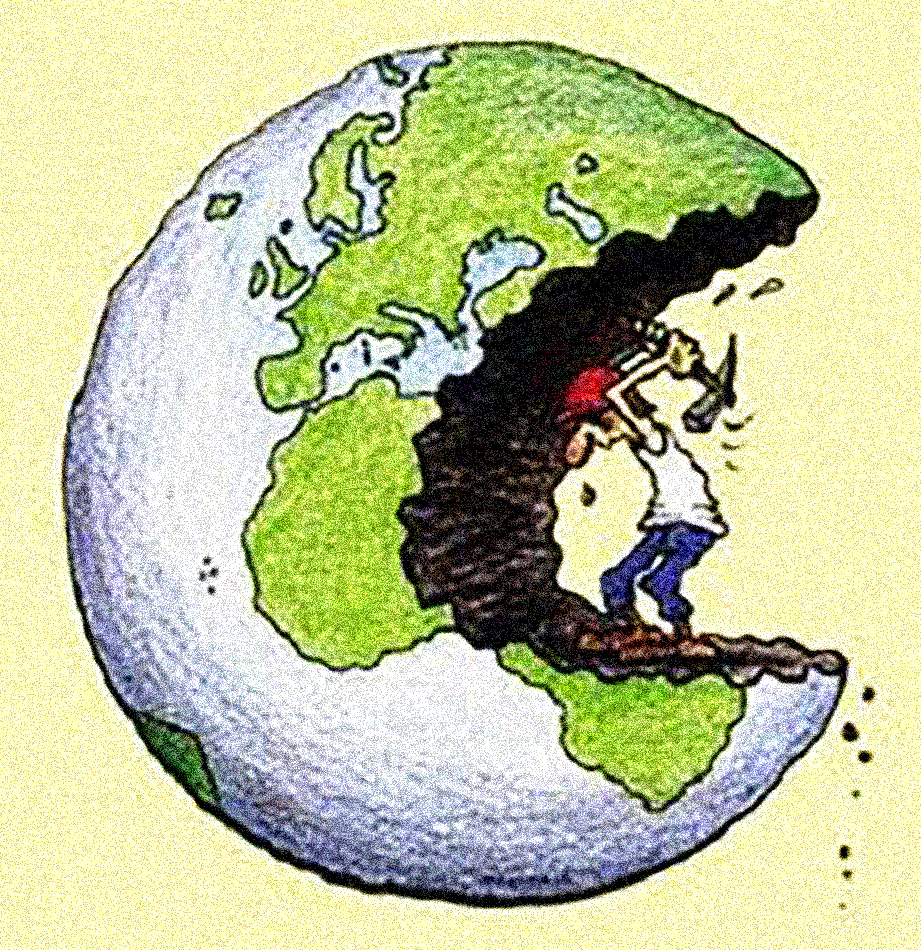
You can’t have ever expanding economic growth on a planet with finite resources. To simply focus on carbon emission when we’re recklessly consuming more of the Earth’s resources is more than simply taking your eye off the ball, it’s becoming part of the problem. Part of the problem is that some of the ‘solutions’ posed in a bid to reduce carbon emissions are resource intensive and environmentally destructive. Electric vehicles using lithium batteries is just one example of a bogus and destructive ‘solution’. It’s nothing more than a techno-fix which papers over the cracks but does nothing to stabilise the underlying structure. At some point, we have to work towards a steady state, circular economy.
It’s a crisis of a broken relationship with nature and the planet we live on
We can’t stand above the ecology that supports us. We certainly can’t afford to trash the ecosystems that support us. In the West, our relationship with nature has been under attack ever since the first colonists went overseas and saw the lands they went to as resources to be exploited. That relationship was also attacked as a result of the enclosures that sped up the move of people to the newly emerging industrial towns and cities. We went from a life lived to the rhythms of the seasons to one dominated by the clock and production targets. Once that relationship is broken, we lose sight of how we’re a part of a mutually dependent ecosystem. We also lose the spiritual connection we have with nature.
It’s a crisis of the spirit and of loss
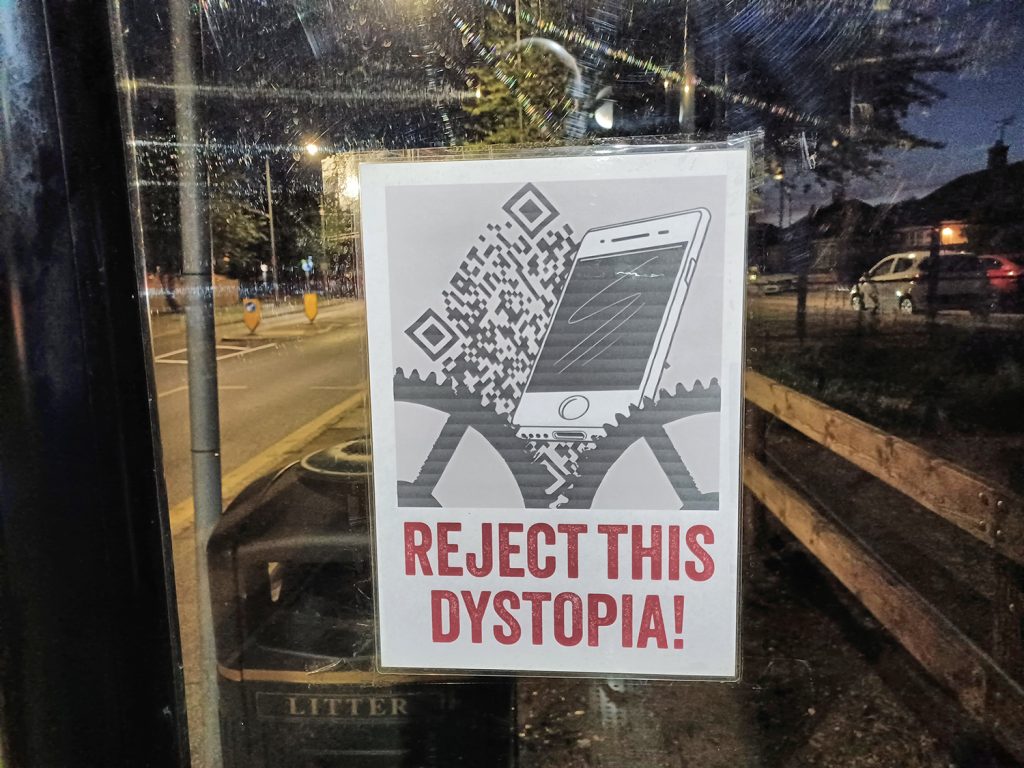
When we lose our relationship with nature, we lose our sense of what is real. Reality is increasingly not what we should be seeing with our eyes and feeling with our hearts. Instead, we’re having a fake reality foisted upon us by the media, an entertainment industry that’s essentially a distraction industry and increasingly, by virtual reality and the looming nightmare of the Metaverse.
What is also under threat is our organic relationship with each other. Relationships that started to change and be fractured by the onset of the industrial revolution which tore our ancestors from their roots and threw them into the hellholes of the factories and the slums. With the advent of mass entertainment, relationships were judged by false ideals we saw on the screen. With the advent of the Net, relationships faced the threat of becoming increasingly virtual. Some have fallen for that, others continue to resist.
We are talking about a crisis of loss…
- The loss of a sense of community and belonging as people have been more or less forced to uproot themselves to move to where the work is.
- The loss of attachment to a place.
- The loss of attachment to a landscape.
- The loss of any sense of a relationship with nature.
- The loss of the familiar in a world that’s changing ever faster and increasingly, in ways we can’t understand.
- The loss of the familiar that will provoke a backlash, trust us on that…
- The loss of certainty and continuity in a rapidly changing and increasingly baffling world.
- The loss of attachment to each other that comes from having to live in a hyper mobile society.
- Now with the Metaverse, AI, ‘work from home’, the loss of any sense of workplace solidarity, replaced with an increasing feeling of isolation and fear.
It’s a crisis of complexity
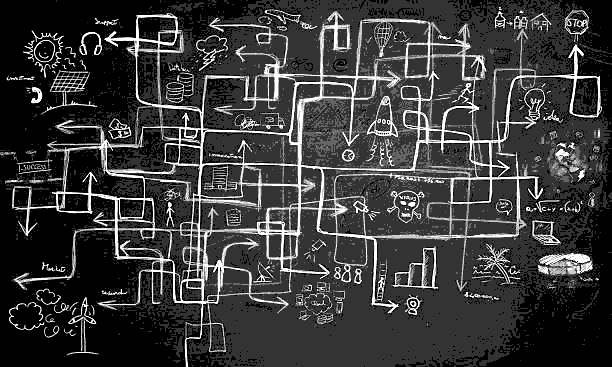
The world is complex. Even the way we’re increasingly obliged to live our day to day lives has become more complex and difficult to navigate. The two of us behind this project are in our mid sixties and we find the digitisation of everything, far from making life easier, is making it more difficult and frustrating. Digitisation meshes a lot of aspects of our lives together in a way that means we cede privacy and control to unaccountable corporate entities and the governments that increasingly do their bidding. The thing about digitising every aspect of our life is that there is no such thing as perfect computer code. There will always be glitches and vulnerabilities. The consequences of these range from delay and inconvenience through to the complete failure of the systems we rely upon as a result of malicious action.
As for dealing with call centres, don’t get us started on that utter nightmare…
Last but by no means least, it’s a crisis of short termism and hubris
From developers through to local councils, there seems to be a failure to recognise that to date, planning has been informed by a mistaken assumption of continuing and expanding car use. Again, setting aside all of the arguments about carbon emissions, we’re talking about a mode of transport fuelled by a finite resource. Regarding electric vehicles, from copper through to lithium, they consume a heck of a lot of finite resources. Resources that are energy intensive to extract from the ground and process. Yet despite all of this, we get planning decisions foisted upon us that will only serve to maintain and increase this dependence. Planning decisions cooked up by a system that seems incapable of anything resembling joined up thinking: Talk to each other? Apply a bit of joined up thinking? 29.10.22.
No one in authority appears to be undertaking any significant, holistic, joined up and above all, long term thinking. Yes, we live in a complex society that is hard to understand but, if mere plebs like us without a university education can see that the planning decisions we dealt with in the above article are hubristic, short sighted crap, then you have to wonder what is going on?
It is indeed a clusterf**k!
There’s a lot going wrong, seemingly all at once. What’s dealt with above is an attempt to deal with the many threads of the crisis and how they mesh, interact with and influence each other. Note I use the word ‘attempt’ because there’s no way I can claim to have some unique insight into what’s going on. A fair number of other people have attempted narratives such as this and it should come us no surprise that our conclusions don’t always match with each other. Having said this, what is abundantly clear is that the situation we’re in can best be described as a clusterf**k. You don’t have to have every component part of the crisis nailed down to realise that…
Can it be solved, if so, how?
If we were given a choice of a starting point for building the kind of sane and genuinely sustainable society we desire, we wouldn’t be starting from this point! However, we are where we are and we have no choice but to deal with the reality we live in. There isn’t a manual for bringing about radical change and there never will be. There are always too many variables to keep tabs on and as soon as one of them changes, that’s your plan in the dustbin!
Where the heck do we start?
The system (such as it is) is failing. This is why the elites are becoming ever more desperate to maintain their hold on power and the obscene amounts of wealth they have. How much work has to be done to bring down a system that’s already showing signs of failing is a difficult one to answer. With so many component parts, you could fix one of them only to find out that it exacerbates problems elsewhere. Tinkering with what are essentially techno fixes, while it may deliver partial results and some small victories, it won’t challenge the underlying power structures that oppress us. If we’re to bring about a sane, liveable world, we’re the ones who need to be in control. The question is, how do we bring power right back down to the grassroots and ensure no one ever has a chance to seize and abuse power again?
There are a number of routes towards this. One of them is prefigurative action. In effect, this is starting to build the new world we want in the shell of the decaying and increasingly dystopian one we currently have to endure. In one way, this is trying out new ways of living, working and co-operating with each other. In another way, it’s about putting in the foundations for a better world that will withstand the upheaval of wresting power away form the elites, once and for all. We’ve written a fair bit about this kind of action in one form or another. Below, in full, is the one piece that we feel sums up the view we have on this with our Grassroots Alternatives hats on:
———————————–
A fluffy project? Nope, not us… 23.5.22
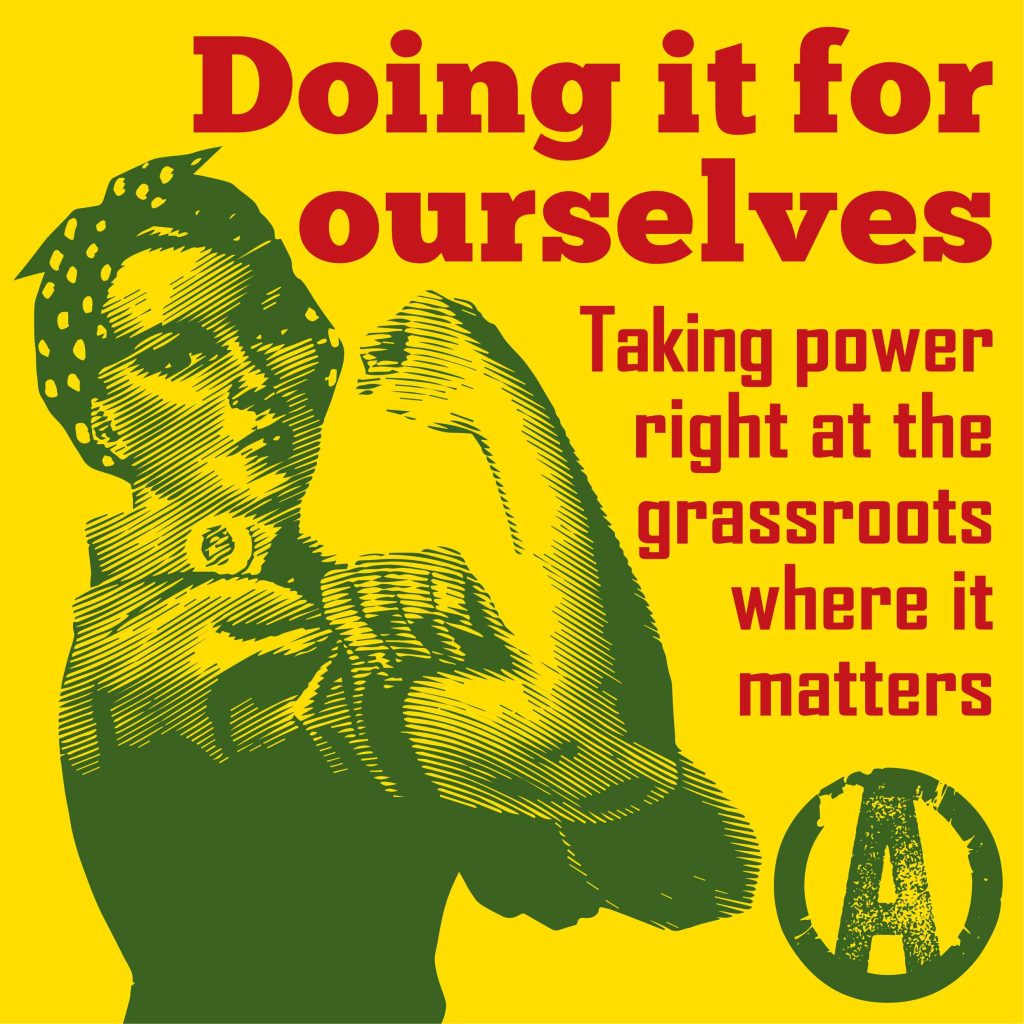
grassroots
grăs′roo͞ts″, -roo͝ts″
noun plural
1. People at a local or low level rather than at the center or upper levels of an organization or movement. Often used with the.
2. The lowest or most basic level of an organization or movement.
The American Heritage® Dictionary of the English Language, 5th Edition.
The above is a dictionary definition of grassroots. It’s pretty clear that it’s about bringing power over our lives right down to the lowest level which to all intents and purposes, are our neighbourhoods. That’s bringing power down to the level where we collectively exercise it and are accountable to each other. Accountable in a way that neither local authorities or national governments ever can be. Accountable because unlike local or national government who serve a range of unaccountable corporate interests, we’re working for each other in our communities.
You don’t need us to tell you that trust in government at both a local and national level is in decline. A breakdown in trust can be seen as something negative in that cynicism has replaced any sense of hope for the future. On the other hand, it can be seen as a liberating step as it dawns on a growing number of people that our interests are best served by working for each other in our communities rather than relying on increasingly unaccountable forms of governance. Once that realisation grows, then we can start on the serious work of taking power at the grassroots.
However, it could be argued that the seeds for that have already been planted. It could even be argued that they’ve always been there, it’s just that they have not had the right conditions to germinate, grow and flourish. Despite what some people may tell you, by and large, humans are a co-operative species. Working and co-operating with each other is the best way of meeting our needs, material and spiritual. You only have to look at the Links page on this blog to see the array of projects and initiatives people willingly volunteer their time and effort for in order to make their communities better places to live.
If you took all of the voluntary groups out of the equation, society would be very much diminished in the process. In fact, it could be argued that it would barely be able to function. Let’s look at a few examples… Firstly, if it wasn’t for this group of residents in Stanford-le-Hope – Passionate about Hardie Park – the local town park would have stayed as a neglected no go area instead of the thriving community asset it is today. If it wasn’t for the Southend Beach Care Group, the beaches in Southend would be in such a state that a number of them would be unusable. If it wasn’t for the Laindon School Uniform Bank, there would be families in Laindon and Basildon struggling to pay for their kids’ school uniforms. There are many more examples of how residents have got together to meet a need in their communities.
By doing this, not only is an immediate need met, by involvement in the project, people are empowering themselves by learning new skills. Also by working on a grassroots project, people are forming bonds with each other and building the community solidarity we need in these increasingly troubled times. Empowerment and community solidarity have the potential to be a potent combination. A combination that as the system slowly crumbles and becomes more dysfunctional, will increasingly become vital, not just to get us through whatever crises are coming our way, but also to lay the foundations for the new world we want to see.
That’s what the Grassroots Alternatives project is about. It’s about empowering people to bring about fundamental change and build a better world in the process. When you start talking about bringing power back down to the level of the neighbourhood where we can all be accountable to each other and take it away from the elites, you’re making a fundamental challenge to the status quo. Challenging the status quo is a serious business. That is why Grassroots Alternatives is NOT a fluffy project in any way, shape or form!
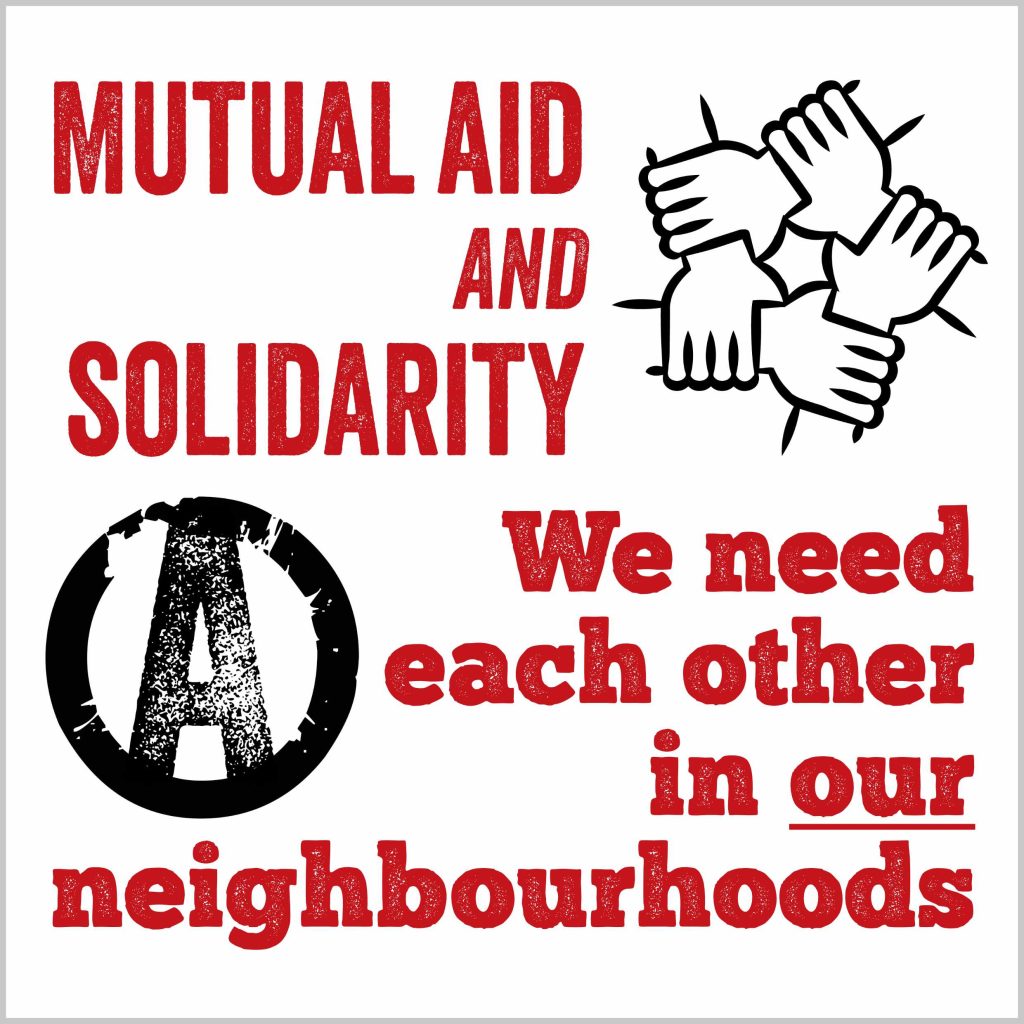
———————————–
If you’re looking for a movement to bring about radical change, may we suggest that you don’t look towards the normal suspects to deliver that. That’s something else we’ve written a fair bit about! Rather than re-hash the arguments, we’ll point you to this:
Thoughts that really shouldn’t be published, but… 23.5.22.
“The Fourth Industrial Revolution (4IR) is the biggest threat we face to what it means to be human. The Covid crisis was leveraged to accelerate the already existing drive towards the 4IR. For stating what has become increasingly obvious, we’ve been branded as ‘conspiracy theorists’, often by people we once regarded as comrades… You would hope that this threat could be faced off by the strength of a united movement. You probably don’t need us to tell you that’s far from being the case!”
We’ll also point you to this:
Where the f**k do we go from here? 9.10.22
“All is not lost, far from it. In any time of crisis, it’s an intrinsic part of the human condition for people to spontaneously work together and support each other to get through the situation. More often than not, in varying ways, this is done in a non-hierarchical way. This happens across the globe regardless of ethnicity and/or religion. We’re talking about ways of grassroots organising that predate the oppressive structures that have been imposed upon us at various points in the history of humanity. We’re talking about the kind of collective self organisation that probably doesn’t need a label slapped on it along with a lot of unwanted accompanying baggage. We’re talking about the kind of collective self organisation whose participants would, rightly in our opinion, reject any attempts to label them or put them into some kind of ‘ism.”
As for the nuts and bolts of smashing the power of the elites once and for all, we hope you’ll understand that’s something best not speculated upon in a public forum!
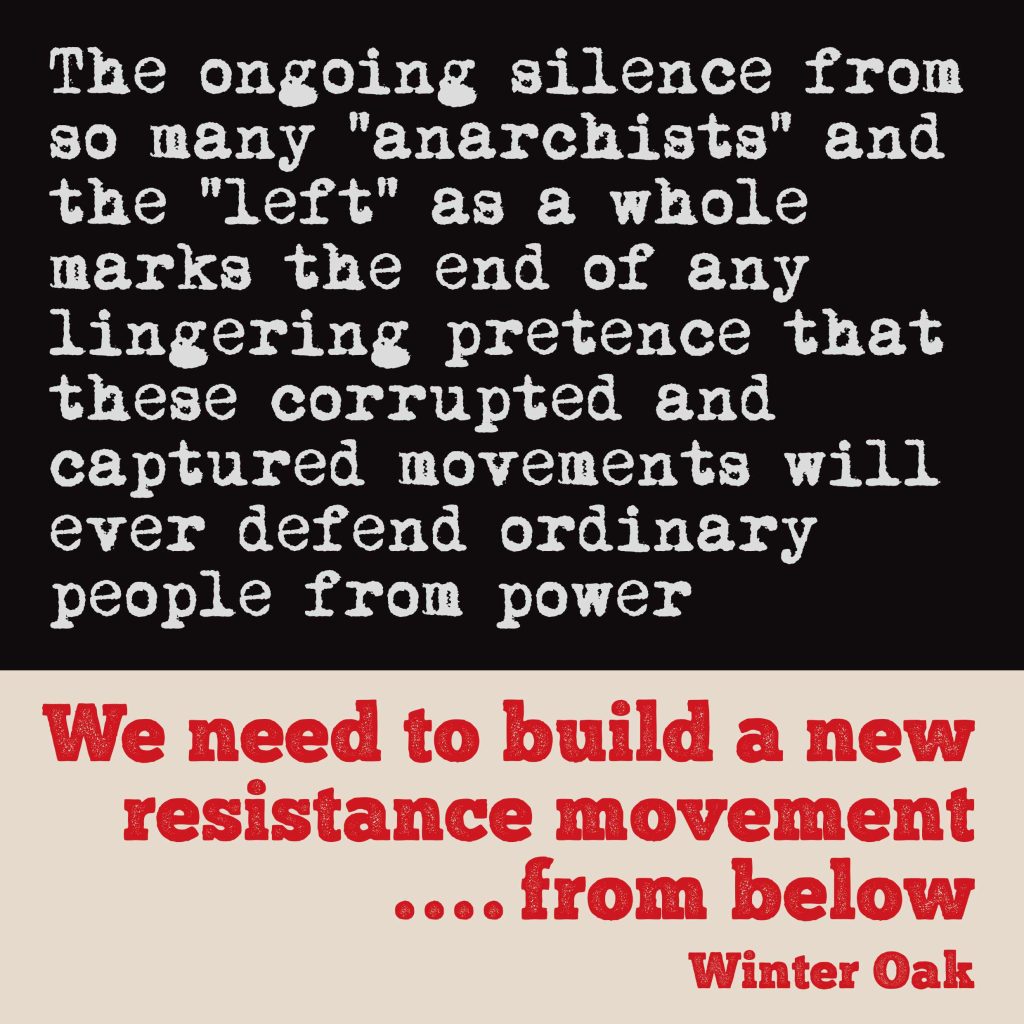
Conclusion
We’ve outlined as best we can, what we think the crisis we’re facing is about. As ever with any attempts at an analysis such as, they are…attempts… We’re not arrogant enough to suggest that we could come up with a comprehensive analysis of what’s being done to us, why it’s being done to us and whose ultimate interests it serves. As mentioned earlier, beware of anyone who comes up with a simplistic take on where the power actually lies and how it’s exercised. Do bear in mind that while the bastards who presume to rule over us are to put it bluntly, evil, they’re also fallible. Sometimes, they will screw up and reveal their vulnerabilities. When that happens, don’t speculate as to whether it’s all part of ‘the plan’. It’s not…they screwed up and when that happens we need to be ready to exploit that.
We’ve offered some pointers as to how we start to bring about change. In addition to the links to previously written pieces, we’ll leave you with these thoughts… Be open minded and look beyond the normal suspects to start building for change or to kick things off. Within the various currents against the Covid lockdowns, restrictions, vaccine mandates and more who came together on the streets every month to protest, there may well be the seeds of resistance and ultimately, revolution. Simply because a fair few of them were prepared to think outside of the box and start asking some very difficult questions. There will be other currents of dissent and anger elsewhere. Don’t expect them to come with a fully formed political analysis or stance, because that won’t happen.
As ever with these pieces, there’s always an element of thinking out loud involved. The point of putting out our thoughts for the world to see is to have what we hope are constructive and comradely discussions about the scale of the problems we face and where we go from here.
